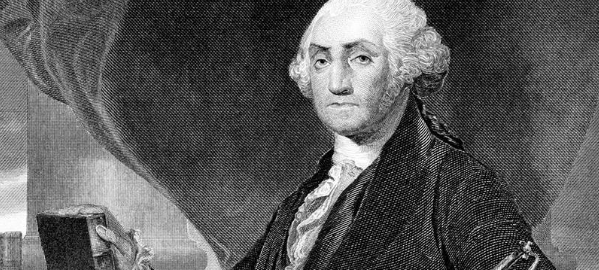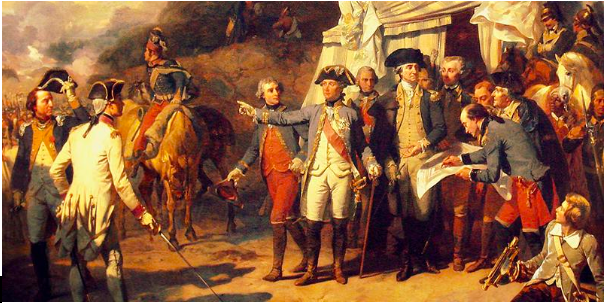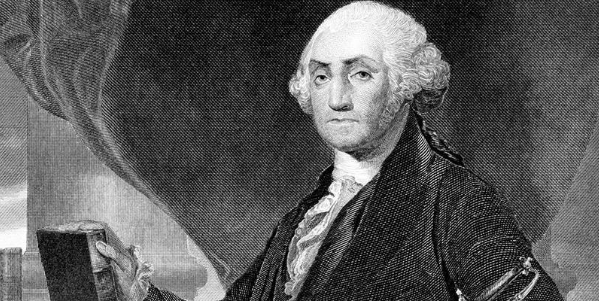
Regarded as one of the greatest leaders in American history, George Washington was also an amazing speaker. Find out what you can learn from his resignation speech.
George Washington was the first President of the United States.
That alone is enough to tell you just how influential the man was. A decorated military leader, Washington earned the trust and support of an entire nation. He had the unenviable task of guiding the United States through its first years of independence.
And he did it spectacularly.
In fact, he was so effective as a leader that many felt the country couldn’t survive without him. Washington knew about this sentiment when it was time for him to step down.
And with his resignation speech, he showed people why it was so important for the country to march forward without him.
We’re going to look at what made Washington’s speech so effective in a moment. First, let’s take a look at the life of one of the most influential men in American history.
Who Was George Washington?
Born in 1732, Washington had deeper roots than many who lived in North America at the time. His great-grandfather arrived in Virginia from England during the reign of Henry VIII.
George’s grandfather followed suit in 1657 after the reign of Oliver Cromwell robbed the Washington family of all of its wealth. It was in North America where George’s father, Augustine, was born.
We know little about Washington’s childhood. But we do know that he worked as a surveyor in his teenage years. And it was during this time that his natural leadership qualities began to show.
Ironically, Washington’s first tastes of military action saw him fight for the British. Throughout the 1750s, he fought against the French on behalf of the British. But in 1758, Washington saw his application for commission as part of the British Army refused.
Throughout the 1760s, British imperialism began to grate on Washington. He took issue with both The British Proclamation Act and the Stamp Act. However, it was the Townshend Acts of 1767 that saw him begin to mount protests against the British.
This opposition continued to mount until the Revolutionary War started in 1775. Appointed as the Commander-in-Chief and Major General of the colonial army, he played a crucial role in guiding America to victory.
This mix of military experience and leadership ability made him a natural choice for the Presidency. He received unanimous approval from the Electoral College and served in the role from 1789 to 1797.
He had tried to retire before then. However, the general belief that he was the only man who could lead the country led to him serving for longer than he intended.
When he finally did retire, he delivered a speech that gave hope to a new nation and showed that it would progress with or without him.
The Lessons You Can Learn from Washington’s Speech
So what of the great man’s speech?
What made it so influential that it helped an entire nation overcome its grief over losing their first leader?
These are the lessons that an aspiring speaker can learn from Washington’s speech.
Lesson #1 – Don’t Avoid Getting Help From Others
There’s a belief in some circles that great speakers work alone.
That isn’t always the case. In fact, many of history’s greatest speeches were team efforts delivered by someone who had great influence.
Such was the case with Washington’s retirement speech.
When he first considered retiring, Washington called on James Madison to help him create a draft of his farewell speech. Four years later, he asked his aide, Alexander Hamilton, to help him.
In the end, Washington took parts of both speeches and weaved them into the key thread that he wanted to maintain.
Other people, particularly those who know you and your story, may be able to offer additional insight. They bring a fresh perspective on your message that you may not have considered.
Don’t feel like getting help shows that you’re a bad speechwriter. Your goal is to craft the most engaging speech possibly and other people can help you get there.
Lesson #2 – Establish Your Key Point Early
Washington’s retirement was the elephant in the room that nobody wanted to confront. The entire country saw him as the man who’d led them to independence.
People simply didn’t want him to step down.
Washington knew this and chose to address the issue during the opening lines of his speech:
“The period for a new election of a citizen to administer the executive government of the United States being not far distant…it appears to me proper…that I should now apprise you of the resolution I have formed, to decline being considered among the number of those out of whom a choice is to be made.”
This bold statement established the key thread that ran through the entire speech. Washington would retire no matter what. Instead of softly working towards that point, he confronted it directly. This allowed him to deliver the rest of the speech having dispelled the elephant in the room.
Do the same with your own speech. Tell people why you’re speaking and what key points you want to get across. Then, build the rest of the speech from there in the knowledge that your audience knows its purpose.
Lesson #3 – Unite Your Audience Behind a Common Cause
With his intention to retire made clear, Washington focused on his speech’s most important job.
He needed to unite and inspire an entire nation to engage in the election process for the next President.
Washington made the bond he shared with his audience, and the bond they shared with each other, clear when he said:
“You have in a common cause fought and triumphed together; the independence and liberty you possess are the work of joint counsels, and joint efforts of common dangers, sufferings, and successes.”
The message was clear. All in America had united to overthrow British tyranny. Now, they must unite again to decide on the country’s direction for the future.
Here, Washington emphasises the importance of his message. He highlights how the election of a new leader should not tear the nation apart. Instead, it is a chance for people to come together and focus on the future.
He continued to touch upon this thread when speaking about the need for unity among the states of the union:
“To the efficacy and permanency of your Union, a government for the whole is indispensable. No alliance, however strict, between the parts can be an adequate substitute; they must inevitably experience the infractions and interruptions which all alliances in all times have experienced.”
Washington provided guidance. Plus, he argued against the potential divisions that might result from his leaving office.
You can use this focus on unity for your own speech.
Showcase the similarities that you share with your audience. Talk about the similarities that they share with one another. Show them that you intend to unite them to solve a common problem and they may engage more readily with your message.
This is especially important when talking about a topic that may divide people, such as politics. Find the common thread that binds your audience together and use it to maintain their attention.
Lesson #4 – Show Your Appreciation to Your Audience
Always remember that your audience has taken time out of their day to watch you speak.
That time has value and you need to respect and appreciate each member of the audience for giving you theirs.
Washington did just this at the beginning of his speech when he said:
“I am influenced by no diminution of zeal for your future interest, no deficiency of grateful respect for your past kindness, but am supported by a full conviction that the step is compatible with both.”
He expresses his appreciation for everything that his country and audience have given him. And he quickly links this show of gratitude to his key thread.
You won’t have the same reasons for thanking your audience. However, it’s crucial that you show gratitude.
This audience has given you a chance to influence them. Do not take this privilege lightly.
The Final Word
Washington’s speech had a profound impact on a developing nation. Its call for unity gave the people direction at a time when there was potential for ruinous division.
Even today, a member of the Senate reads this speech each year.
Washington’s speech may use unfamiliar language and run longer than most modern speeches. But it still provides a number of valuable lessons for today’s speakers.
Uniting and showing gratitude to your audience can help you keep people engaged. Washington also shows us the value of establishing your key thread early so you can get to the point of your speech.
And finally, it’s okay to ask for help. Even the greatest speakers in history relied on others to provide them with guidance.
That’s the role that Speakers Institute would like to play in your career.
We can help you with everything from how to craft a speech through to building a business around your speaking.
Just do the following to get started:
- Take me to GREENROOM. The #1OnlineHub connecting you to the world’s leading Influencers, Training and Curriculum.
- For information on dates and times of our live events, just go here: LIVE EVENTS


